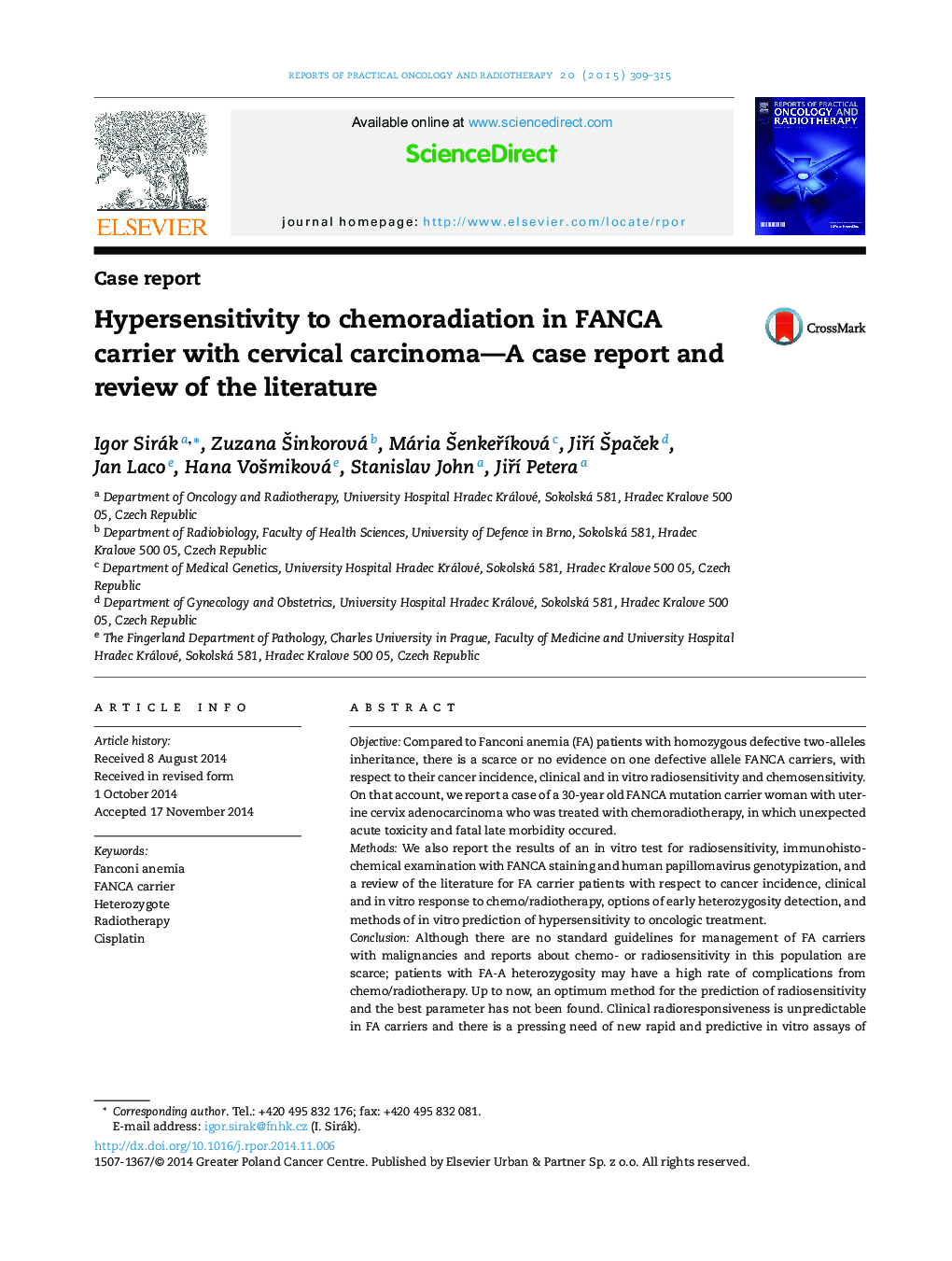| Article ID | Journal | Published Year | Pages | File Type |
|---|---|---|---|---|
| 1855366 | Reports of Practical Oncology & Radiotherapy | 2015 | 7 Pages |
ObjectiveCompared to Fanconi anemia (FA) patients with homozygous defective two-alleles inheritance, there is a scarce or no evidence on one defective allele FANCA carriers, with respect to their cancer incidence, clinical and in vitro radiosensitivity and chemosensitivity. On that account, we report a case of a 30-year old FANCA mutation carrier woman with uterine cervix adenocarcinoma who was treated with chemoradiotherapy, in which unexpected acute toxicity and fatal late morbidity occured.MethodsWe also report the results of an in vitro test for radiosensitivity, immunohistochemical examination with FANCA staining and human papillomavirus genotypization, and a review of the literature for FA carrier patients with respect to cancer incidence, clinical and in vitro response to chemo/radiotherapy, options of early heterozygosity detection, and methods of in vitro prediction of hypersensitivity to oncologic treatment.ConclusionAlthough there are no standard guidelines for management of FA carriers with malignancies and reports about chemo- or radiosensitivity in this population are scarce; patients with FA-A heterozygosity may have a high rate of complications from chemo/radiotherapy. Up to now, an optimum method for the prediction of radiosensitivity and the best parameter has not been found. Clinical radioresponsiveness is unpredictable in FA carriers and there is a pressing need of new rapid and predictive in vitro assays of radiation responses. Until then, the treatment of FA carriers with malignancies should be individualized, with respect to potential hypersensitivity to ionizing radiation or cross-linking agents.
